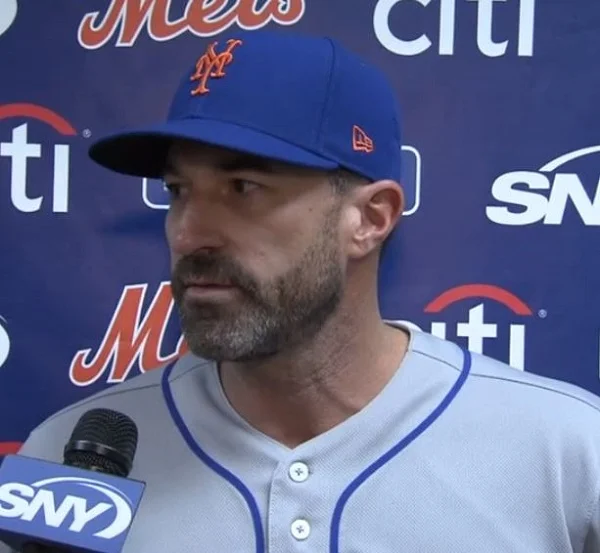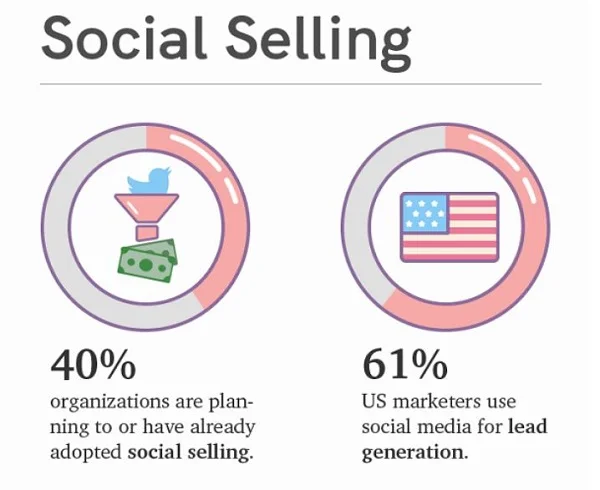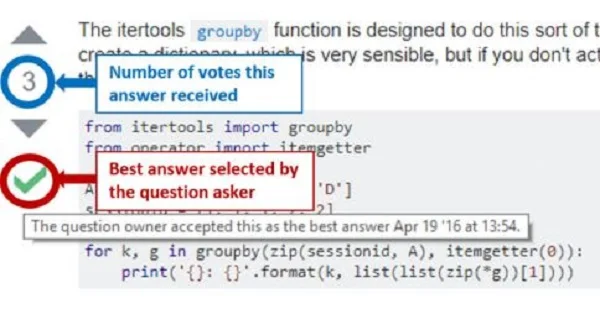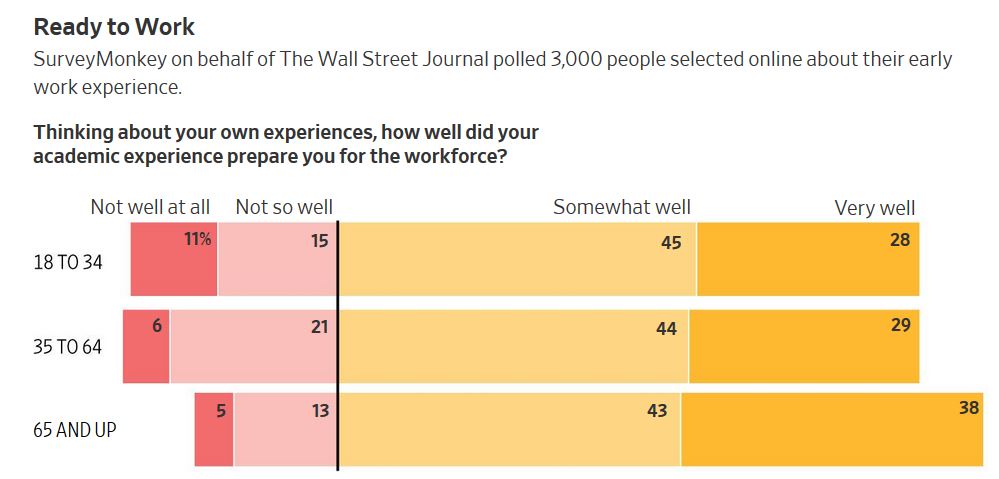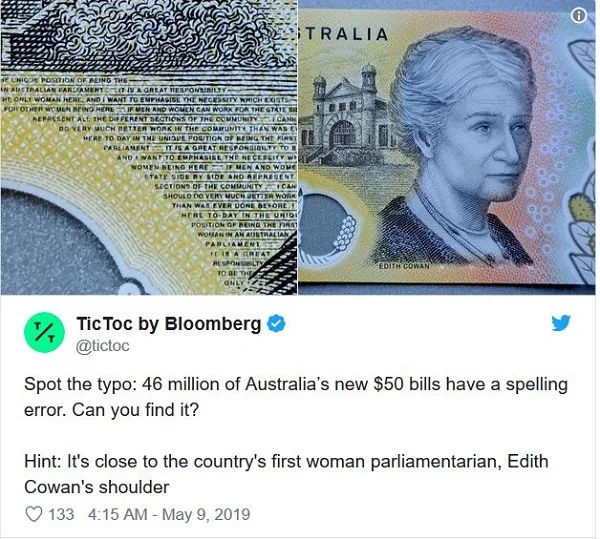Noncompete Agreements for Interns
A Wall Street Journal article reports that college interns are increasingly asked to sign agreements that restrict their job choices in the future. “Noncompete, nondisclosure and forced arbitration agreements,” which have been common for senior-level employees, have made their way down the ranks.
Now, interns are asked to sign agreements on their first day with a company, and they don’t always understand what they’re signing. An agreement can prevent a new grad from, for example, accepting an offer with a competitor within a geographic region.
Some agreements are important for companies to protect their intellectual property and preserve confidentiality, but critics say they go overboard. Also, such agreements may not hold up in court, particularly when they affect low-skilled workers.
Bottom line: interns should be careful about what they sign. An agreement may be more of a deterrent and might not inspire legal action, but students shouldn’t have to feel as though their choices are limited right after graduation.
Signing image source.
Noncompete image source.
Discussion:
What’s your experience with these employment agreements?
What would you do if asked to sign one?
What should companies do differently to protect themselves?
Kim Kardashian West Accused of Cultural Appropriation
Kim Kardashian West named her new line of shapewear Kimono and was accused of cultural appropriation. Kardashian West said the name, which, like her other brands, starts with a “K,” is “a nod to the beauty and detail that goes into a garment.”
A New York Times article describes the controversy over using the name of this traditional Japanese garment:
“But while traditional kimonos, which date from the 16th century, according to the Victoria & Albert Museum, have many associations, those tend not to involve lingerie, Hollywood celebrities or reality TV. Hence, the problem.”
Kardashian West is unapologetic and plans to continue with the line. She said, “I understand and have deep respect for the significance of the kimono in Japanese culture.”
The Times article mentions two other brands that haven’t received the same backlash: Kimono condoms, and Kimono Lash. The author considers whether the Kardashians’ use of social media made them both popular and vulnerable.
Discussion:
What’s your view of using the kimono name for a lingerie line?
Assess Kardashian West’s response: on target, insensitive, or something else?
Do you agree with the author’s conclusion about the Kardashian fame? Why or why not?
How to Navigate Multiple Offers
It’s one of those “good problems”: getting more than one job offer. But navigating the relationships and making a decision can be tough.
A Wall Street Journal article tells the story of a man faking his own death to avoid telling a company that he didn’t want to take the job after accepting an offer. According to an executive at the staffing company Robert Half, “ghosting” a prospective employer is most common among people out of school between two and six years. More and more, employers receive last-minute text messages or no-shows on the first day of work.
A management consultant believes the trouble is that college students lack the communication skills to handle these situations more professionally: “This is the generation that breaks up by text message, so in a professional context, to have to let someone down or give bad news was terrifying.”
Twice this past semester, students asked me for advice in reneging offers. Overall, I’m not a fan of the tactic. To me, it’s an issue of integrity: when students make a commitment to one employer, they shouldn’t change their minds when a better offer comes along. I also worry about their reputation in the industry—and whether their expectations will be too high for the new job, and they’ll end up disappointed. At Cornell, students also give up their access to career services in the future when this happens.
But students do what is best for them. What matters after the decision is how it’s communicated. I always suggest a phone call rather than an email, which takes courage. A direct, honest approach is best, with an apology and some understanding of how the decision affects the employer, who’s left with an unfilled position and additional recruiting time.
Ideally, students get offers at the same time with the same decision deadlines, but of course, that’s not always the case, and comparing offers becomes challenging. The WSJ article recommends these practices for evaluating and accepting job offers:
DO
* Make clear early what you’re looking for in a new job.
* Ask employers their timeline for making a decision.
* Express appreciation and enthusiasm when receiving an offer.
* Take time to assess each offer carefully, weighing both financial and quality-of-life factors.
DON’T
* Communicate important decisions by text or email.
* Try to pit one employer against another in a bidding war.
* Respond to a job offer by announcing that you already have a competing one.
* Base your decision solely on pay.
Discussion:
Have you been in a situation of having multiple offers? How did you handle it?
Have you reneged on an offer? How did you communicate the decision, and how did the employer react?
What other advice would you give students who have multiple offers?
Rutgers Chancellor "Berates" Police Officers
The Chronicle reported that Rutgers Chancellor Nancy E. Cantor “apologized for berating campus police officers.” On her way to the airport, Cantor’s driver hit a parked police car. She was detained and said, “If I miss my airplane, you folks are in trouble!” When an officer asked, “I’m sorry, who are you?” she yelled, “I’m the chancellor!”
The episode, which happened in March, was recorded on the officer’s body camera. Part of the debate is about whether Cantor needed to be detained because she entered the vehicle after the driver hit the other car.
Regardless, the video became public, Cantor apologized, and the Rutgers-Newark police chief responded:
“I appreciate Chancellor Cantor taking the time to review the video. I along with the RUPD are appreciative of her kind words and support. The sentiment is extremely appreciated, and we look forward to continuing a positive working relationship with the Rutgers-Newark chancellor’s office.”
Discussion:
Watch the video exchange. What’s your view of the chancellor’s behavior with the police officers?
Should the officers have done anything differently in this situation? Why or why not?
Assess the police chief’s response. How well does he demonstrate forgiveness?
Boeing at the Paris Air Show
After two fatal plane crashes involving its 737 Max jet, Boeing is trying rebuild its image, and the company made some headway at the Paris Air Show, an international aircraft sales event.
Company leaders are coming closer to admitting mistakes more directly. CEO Dennis Muilenburg said, “We clearly had a mistake in the implementation of the alert.” Muilenburg also admitted that company communications were “inconsistent” and “unacceptable.” Kevin McAllister, the company’s head of commercial aircraft, said, “We are very sorry for the loss of lives as a result of the tragic accidents...our thoughts and our prayers are with their families," and "Our priority is doing everything to get this plane safely returned to service. It is a pivotal moment for all of us.”
At right is a video of McAllister discussing future plans.
Illustrating confidence in the plane, IAG, which owns British Airway, ordered 200 new 737 Max jets, worth about $24 billion at list price. Airbus wants a chance to bid, and we’ll see whether the request is granted.
Discussion:
Based on this and other news reports, how well is Boeing recovering from its crisis? Read more about reactions to the IAG order to help inform your conclusion.
Analyze Kevin McAllister’s communication in the video. Compare his style and approach to Dennis Muilenburg’s. What similarities and differences do you observe?
Harvard Rescinds an Offer
Harvard withdrew an admissions offer after discovering racist comments by the applicant online. The applicant, Kyle Kashuv, posted his version of events, including Harvard’s withdrawal and his responses before and after the final decision.
Kashuv became an activist for gun rights after he survived the school shooting in Parkland, Florida. He joined Turning Point USA, which The Chronicle describes as “a right-wing organization with chapters on many college campuses.”
Despite his explanation and apology, Harvard decided to rescind the offer. ]
Harvard College image source.
Discussion:
Read Kashuv’s account of what happened as well as news articles. What’s your view? Did Harvard make the right decision? Why or why not?
What, if anything, could Kashuv have done to prevent the withdrawal? Could he have been more persuasive in some way?
Mets Manager Admits Mistake
Mets manager Mickey Callaway admitted that an “administrative” error of switching pitchers “probably cost” the team the game. According to reports, the admission was unusual. As one news outlet explained, “His postgame press conferences can get combative, and his unwillingness to admit to any wrongdoing hasn’t played well with the New York media.”
Fans and players seem to be responding positively to the Callaway’s apology. One example is the response from first baseman Pete Alonso:
“Having a manager that’s not straight up and honest, that’s tough to play for a guy like that. But I’m fortunate enough to play for a guy like Mick. I love playing for Mick and all of the other guys love playing for Mick because he’s been honest and straight-up.”
For years now, corporate stakeholders have expected more humility from leaders. Seeing an example in sports is refreshing.
Discussion:
What’s your view of Callaway’s admission?
Not everyone likes this approach. I haven’t seen the clip, but a friend tells me local sports commentators said they want to see more “leadership.” Is admitting failure not part of demonstrating leadership?
What other leadership character dimensions are illustrated by this example?
Analyzing an Infographic
PR Daily presents social media trends in this infographic. Categories include social selling, social listening, influencer marketing, ephemeral content, and social advertising.
The graphic is easy to read and uses several different data displays—some more meaningful than others. Data about social listening, one of the five categories, is at right.
Discussion:
Analyze the audience for the graphic and identify the communication objectives.
What works well about the entire graphic? Consider the organization, writing style, and data displays.
What could be improved?
VW's New Ad
Volkswagen is still trying to rebuild its image after the emissions scandal in 2015. A new advertising campaign tackles the issue directly, beginning with audio news reports from that time. But the focus, described on YouTube, is on the future: “Every negative has a positive. Learn more about our all-electric vehicles and our plans to help make a better tomorrow at vw.com #drivefortomorrow #vw.”
With an emphasis on innovation, the ad is set to Simon and Garfunkel’s classic song, “The Sound of Silence.” Viewers can imagine company engineers during the past few years creating a new line of electric cars— while VW executives said little about the controversy.
The senior VP of marketing for VW of America acknowledged that the ad is risky but explains the rationale:
“[w]ithout mentioning the past...we would never have the credibility or authenticity to move forward with the brand. Through the last three-and-a-half years or so we kind of operated as usual in the consumers [sic] eye. We kept a very consistent message in the marketplace but didn’t really have a powerful point-of-view as a brand.”
Discussion:
What’s your view of VW’s new ad campaign? Did the company make the right decision by invoking the scandal?
Other companies facing scandals, such as Uber and Wells Fargo, placed large apology ads, but VW didn’t take this approach. Why do you think that may be the case? Compare VW’s strategy to other recent recovery campaigns.
Carnival Responds to New Charges
Again, Carnival Cruises is accused of polluting and cover-ups. In 2016, the company paid a $40 million settlement because of actions by its Princess Cruise Lines, including dumping oil-contaminated waste. Now, the company has admitted to violating the 2016 agreement and will pay an additional $20 million.
The Justice Department’s statement identifies violations of probation terms, such as falsifying training records, preparing ships before inspections, and discharging plastic into the water. The plastic discharge was from another Carnival Cruise ship, the Carnival Elation.
In response to the charges, company chairman Arnold W. Donald said, “I do take responsibility for the problems we have. I am extremely disappointed that we’ve had them. I know you have reservations about our commitment and who we are. I want you to know we are fully committed.”
The company also posted a response on its website: corrective actions, information about water treatment, and FAQs. The short press statement, at the top, includes the company’s commitment:
“Carnival Corporation remains committed to environmental excellence and protecting the environment in which we live, work, and travel. Our aspiration is to leave the places we touch even better than when we first arrived.”
Discussion:
Assess Carnival’s response. What persuasive strategies does the company use on its website? What works well, and what could be improved?
The chairman said, “I know you have reservations about our commitment and who we are.” Do you have reservations? Why or why not? How can the company change perception? Consider dimensions of leadership character.
Persuasive Writing
Trish Hall, author of an upcoming book, “Writing to Persuade,” offers advice in a New York Times opinion piece. Most of her suggestions follow principles taught in business communication courses:
Tell the truth. Hall says that emotions are usually more persuasive than facts, which is true, yet she cautions against losing trust. Her advice is backed by research on behavioral integrity—doing what we say we’re going to do.
Be quick about it. Hall emphasizes conciseness, a well-worn principle of business communication.
Banish jargon. Using simple language is another core principle of business communication.
Know your audience. Hall recommends listening to what your reader needs; for example, condolence notes should include something personal about the loved one. Tailoring to the audience is good advice for any message.
Just ask. Hall says people could ask more directly for what they want. I agree, but I’m not sure about her example, which is for “Getting someone to show up”:
No:
Dear Everyone,
I’m involved with a group that gives scholarships to young people and I am hoping that some of you might be able to attend our celebration next Monday. Let me know if you can.
Yes:
Dear Trish,
I’m involved with a group that gives scholarships to young people and I am hoping that you can attend our celebration next Monday. A number of people you know, including John and Jim, will be there. Can I leave your name at the door? It’s at 6 p.m. at the Historical Society Building.
Discussion:
What other persuasive business communication principles would you suggest for writers?
What’s your view of the “Yes” example above: too pushy or about right? What principles does the example follow, and what, if any, changes would you suggest?
I’m curious about the article title, “How to Get Every Email Returned,” which doesn’t quite match the content. What’s your view?
Character Lessons from Bill Buckner
Every obituary about Bill Buckner mentions the former Red Sox baseball player’s fatal error in the 10th inning of “Game 6.” Playing against the Mets during the 1986 World Series, Buckner let a ball go through his legs and lost the championship, which would have been their first since 1918.
In 2008, with tears in his eyes and to a standing ovation, Buckner threw out the first pitch at Fenway Park when the team was honored for winning the World Series in 2007.
How does someone overcome such a mistake? The New York Times reports that fans were gracious, cheering him when he appeared on field in later years. Buckner did say that it’s “the ugly part of sports” that we focus on just one play in an otherwise stellar career:
"I don't think that in society in general that's the way we should operate. What are you teaching kids? Not to try because if you don't succeed then you're going to buried, so don't try?"
Discussion:
What character lessons can we learn from Buckner’s experience?
What mistake have you made and recovered from? What did you learn about yourself in the process?
Avis Announces New CEO
Avis is looking for a new CEO while trying to navigate the changing rental car business. Larry De Shon was appointed to the position in 2016 after ten years with the company. I’m curious why he’s leaving.
News reports, such as a Wall Street Journal article, don’t provide an explanation. The stock has done well, and Avis has made strategic moves, including servicing Waymo’s self-driving cars. As part of its repositioning, Avis now considers itself a “provider of mobility solutions” instead of a car-rental company.
Avis’s news release presents De Shon positively, including his glowing quotes about the company and the board chair’s quote about his success:
“On behalf of the Board and the entire team, I’d like to thank Larry for the many contributions he has made to Avis Budget Group since he joined the Company in 2006, and for his exceptional leadership as CEO for the last four years. Larry has played an instrumental role in positioning Avis Budget for the future of mobility, while navigating through unprecedented industry challenges. Together with our outstanding management team, Larry has built a strong foundation for growth and continued success. We are pleased that we will continue to have access to Larry’s insights.”
Avis is also planning to keep De Shon on until the end of the year for a transition period, which is another sign that he isn’t being forced out.
Discussion:
What do you think is the reason for De Shon’s departure?
Should Avis or De Shon say more? Or should I mind my own business?
Analyzing a Column Chart
A Bloomberg article shows Manhattan resale home prices in a declining column chart. At a glance, the graph shows a clear, fairly steady decline since 2017.
When you mouseover the chart on the website (not here), the date and percentage appear.
Discussion:
Assess the chart title, “How Low Can They Go?” Why would the author or copywriter choose this title? How effective is it for the audience of business news readers?
Assess the chart format. What works well, and what could be improved?
What’s your view of using the mouseover instead of labeling bars. What other choices could work well?
Polite Answers Are Perceived as Higher Quality
A study published in Management Information Systems found that the more polite an answer is, the more likely it is to be viewed as a good answer. Researchers studied conversations in Stack Exchange, a community site for posting questions and answers, on which question posters rate responses.
The only exception to this finding is when the person posting the response is considered to be an expert. Then politeness doesn’t seem to matter.
To avoid this “politeness bias,” which could falsely elevate responses, the researchers propose giving more weight to ratings by users other than the poster. And rather than marking a response as “best answer,” responses could be marked “accepted.”
In the example, below, Amazon Mechanical Turk (AMT) workers discuss bank transfers.
We can see that the impolite answer is harsh, telling the poster to check instructions before asking a question, as if to say, “You’re wasting my time.” However, that answer provides almost identical information with one exception: “go to the Earnings page.” I’m not sure how helpful this is, but otherwise, the responses—at least in terms of clear instruction—are very similar.
This study reminds me of another that found well-written online reviews to increase sales—even if the review was negative. Although this is more about writing style and grammar than tone, both have implications for getting ideas accepted online.
Discussion:
How would you assess the two responses above? Could you see the questioner selecting the polite answer over the impolite answer for “best answer”?
How, if at all, are you influenced by writing style, grammar, and tone in online discussions and reviews?
Restaurant Owner Forgives Manager for $4,710 Mistake
The manager of Hawksmoor Manchester steakhouse accidentally served a $5,000 bottle of wine when the guests ordered one priced at $290. The owner forgave her publicly, on Twitter.
Naturally, the conversation doesn’t end there. Jokes abound, one announcing that the manager has since been placed in an “on-site incinerator.”
Others pounced on the expensive wine and criticized the restaurant, to which the owner responded in a tweet:
I’m sure you’re all getting tired of this now, so one last thing, to the people who put homelessness in Manchester next to ‘£4500 wine?!’ and suggesting we have no values: we’ve raised well over £1m for @ACF_UK, work with @WoodSt_Mission and @notjustsoupMCR. We have values.
Discussion:
What leadership character dimensions are demonstrated by this story?
How well did the owner respond to criticism?
Uber CEO Explains Disappointing IPO
Uber CEO Dara Khosrowshahi sent email to employees about the company’s disappointing IPO. Shares sold for $45 but dropped the next day to a low of $37.08. In his email, Khosrowshahi encourages employees to take a long-term view and compares the company to Amazon and Facebook, which he says also experienced trouble after their openings.
Team Uber:
I’m looking forward to being in front of you at the All Hands tomorrow, but I wanted to send you a quick note in the meantime.
First off, I want to thank you all for your passion for and commitment to Uber. We simply would not be here without you.
Like all periods of transition, there are ups and downs. Obviously our stock did not trade as well as we had hoped post-IPO. Today is another tough day in the market, and I expect the same as it relates to our stock.
But it is essential for us to keep our eye on the long-term value of Uber for our customers, partners, drivers and investors.
Every stock is valued based on the projected future cash flows/profits that the company is expected to generate over its lifetime. There are many versions of our future that are highly profitable and valuable, and there are of course some that are less so. During times of negative market sentiment, the pessimistic voices get louder, and the optimistic voices pull back.
We will make certain that we communicate our incredible value as a company that is changing the way the world moves, but also the value that we are building for our owners. But there is one simple way for us to succeed – focus on the work at hand and execute against our plans effectively.
Remember that the Facebook and Amazon post-IPO trading was incredibly difficult for those companies. And look at how they have delivered since.
Our road will be the same. Sentiment does not change overnight, and I expect some tough public market times over the coming months. But we have all the capital we need to demonstrate a path to improved margins and profits. As the market sees evidence, sentiment will improve, and as sentiment improves, the stock will follow. We will not be able to control timing, but we will be able to control the outcome.
We will be judged long-term on our performance, and I welcome that. It’s all in our hands.
I look forward to being there at the All Hands to answer Qs and tell you more.
Discussion:
Why would Khosrowshahi write an email in advance of an employee meeting?
What persuasive strategies does he use to explain the IPO performance?
Which arguments do you find least and most convincing?
OpenTable Announces Privacy Changes
An email from OpenTable summarizes changes to the privacy policy and directs readers to the entire policy on the website. The company is using a lighthearted approach to convey what information is shared and how users will have better control over what they are willing to share.
We can view this as a positive message, although it uses some persuasive strategies. Overall, the company is trying to simplify a complex issue—and the email simplifies the far more complex policy.
Discussion:
Analyze the message. Who is the primary audience, and what are the communication objectives? How would you describe the tone and writing style? What organizational strategies are used?
What persuasive strategies does the message use?
Overall, how effective is the message in meeting its communication objectives? What, if anything, could OpenTable do differently?
How New Grad Jobs Have Changed
A Wall Street Journal article warns new graduates that they “will be thrown right into the fray.” According to the article, entry-level jobs used to be lower level, but today they involve more important work, and employers expect more from recent grads.
Technology handles more routine tasks, so even new entrants into the job market may find themselves meeting with clients and making presentations. These jobs more commonly include external components.
The article also blames organizations’ “cost-cutting and flattening,” so training and close supervision are no longer available. New grads have to figure things out on their own.
Fortunately, students feel more prepared today because universities focus more on career preparation. Also, as a new grad, you’ll have more autonomy and can design the job you want. But you have to be self-reliant and have strong communication and influence skills.
Discussion:
What’s your reaction to this article? Does it excite you, scare you, or something else?
How does this relate to your internship experiences? What were the expectations, and how well did you achieve them on the job?
Typo on Australian Banknote
Australia printed 400 million $50 bills with a typo, and about 46 million of them are in use.
On the front of the bill, we see a picture of Edith Cowan, who was a social reformer and Australia’s first female parliamentarian. Near her shoulder, we also see a transcript of her first speech to the the Western Australian Parliament. In tiny print, but clear when it’s enlarged, is a misspelling of “responsibility,” missing the third “i.” The bills were in circulation for about six months before discovered by a radio station.
The Reserve Bank of Australia has since confirmed the mistake, saying it will correct the error in the next print run. A spokesperson explained the error:
“The process of designing and printing a banknote is complex and iterative. We have strict quality assurance processes, but like any manufacturing process, errors can occur. We have reviewed our processes to remove the likelihood of such an error occurring in the future.”
Discussion:
How does an error like this happen? How could it have been prevented?
How do you assess the bank’s response? Who is the audience, and what are the communication objectives? What, if anything, should the bank say or do differently now?










